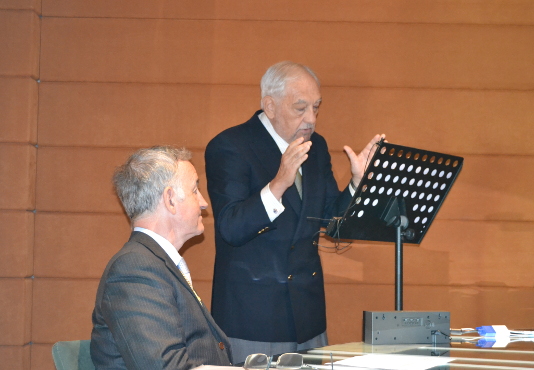“The West has always sought to subsume the collective experience in personal experience”
Enrique Tierno, full academician of the Royal European Academy of Doctors-Barcelona 1914 (RAED), reviews in the paper “Las Confesiones literarias” (The Literary Confessions) the trajectory and the actuality of a genre intimately linked to the western narrative that tries to explain the reality of an age or religion from an intimate and reflective point of view. “This literary form has been a constant in the history of the West and underlines a permanent feature of Western anthropology, namely, introspection -explains the academician-. The Confessions, from a historical point of view, coincide with the moments of maximum introspection which, in addition, usually coincide with moments of deep social changes. When there are great changes in social stratification appear Confessions”.
 Tierno points out two works of this genre that transcend the history of literature to establish two key moments in theology, philosophy and history: the Confessions of Saint Augustine and those of Rousseau. And he emphasizes as much its validity as its ascription to the western culture. “The literary tradition of the Confessions has not yet disappeared from Western culture, for in the West it has always been intended to subsume collective experience in personal experience. This attitude differentiates us from the Eastern world”, he reflects.
Tierno points out two works of this genre that transcend the history of literature to establish two key moments in theology, philosophy and history: the Confessions of Saint Augustine and those of Rousseau. And he emphasizes as much its validity as its ascription to the western culture. “The literary tradition of the Confessions has not yet disappeared from Western culture, for in the West it has always been intended to subsume collective experience in personal experience. This attitude differentiates us from the Eastern world”, he reflects.
Although within the West, Tierno emphasizes a Romanesque tradition from which the Anglo-Saxon literatures are distanced. In large part, he considers, because of the vanity contained in the Confessions, something about which the Protestant Reformation was very critical. “The Confessions belong more to the area of Latin-Romanesque culture, because the Anglo-Saxon culture rejects them in favor of great biographies, autobiographies or memoirs”, explains the academician.
As for the influence of gender on religion, Tierno puts examples of draft beyond the work of Saint Augustine. “Some Confessions that deserve to be emphasized in moving away from literary conventionalism and that will never have their equal until Rousseau, are those of Saint Ignatius of Loyola. Both his ‘Life’ and the ‘Spiritual Diary’ are modern Confessions insofar as they discover their intimacy, having to overcome a certain shame and fear of other people’s critics”, he emphasizes.



